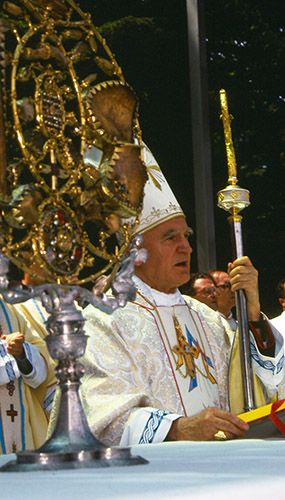Check out items from Croatian history for this week, you may be surprised by what you find
April 9
Jerko Leko, born on 9 April in 1980, is a retired Croatian footballer. He primary played as central midfielder, but could also operate as a right one, or more defensively, as a right-back. Leko's career began with GNK Dinamo Zagreb in 2000, although he was not an immediate success. After spending some time on loan at NK Croatia Sesvete, he became a regular starter in 2001/2002, helping Dinamo Zagreb win the Croatian Cup, scoring in the final against NK Varteks and being named Man of the Match. Leko eventually moved to Dynamo Kyiv in 2002 for €5.5m (a then club record). In 2015, he permanently joined Lokomotiva for the last season of his professional career. In his career, he made 59 appearances for the national team, playing at two European and one World Championship. With various clubs he played 436 matches, scored 36 goals and earned 151 yellow cards.
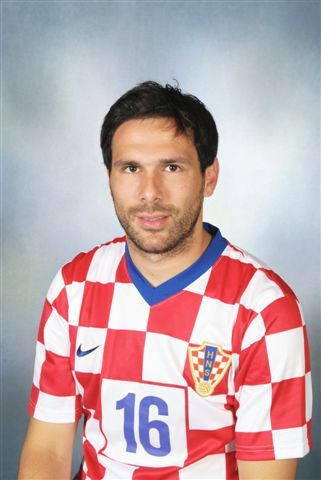
April 10
The Independent State of Croatia was a World War II fascist puppet state of Germany and Italy. It was established in parts of occupied Yugoslavia on 10 April 1941, after the invasion by the Axis powers. Its territory consisted of most of modern-day Croatia and Bosnia and Herzegovina, as well as some parts of modern-day Serbia and Slovenia, but also excluded many Croat-populated areas in Dalmatia (until late 1943), Istria, and Međimurje regions (which today are part of Croatia). During its entire existence, the NDH was governed as a one-party state by the fascist Ustaša organization. The Ustaše was led by the Poglavnik, Ante Pavelić. The regime targeted Serbs, Jews and Roma as part of a large-scale campaign of genocide, as well as anti-fascist or dissident Croats and Muslims. The state was officially a monarchy after the signing of the Laws of the Crown of Zvonimir on 15 March 1941.
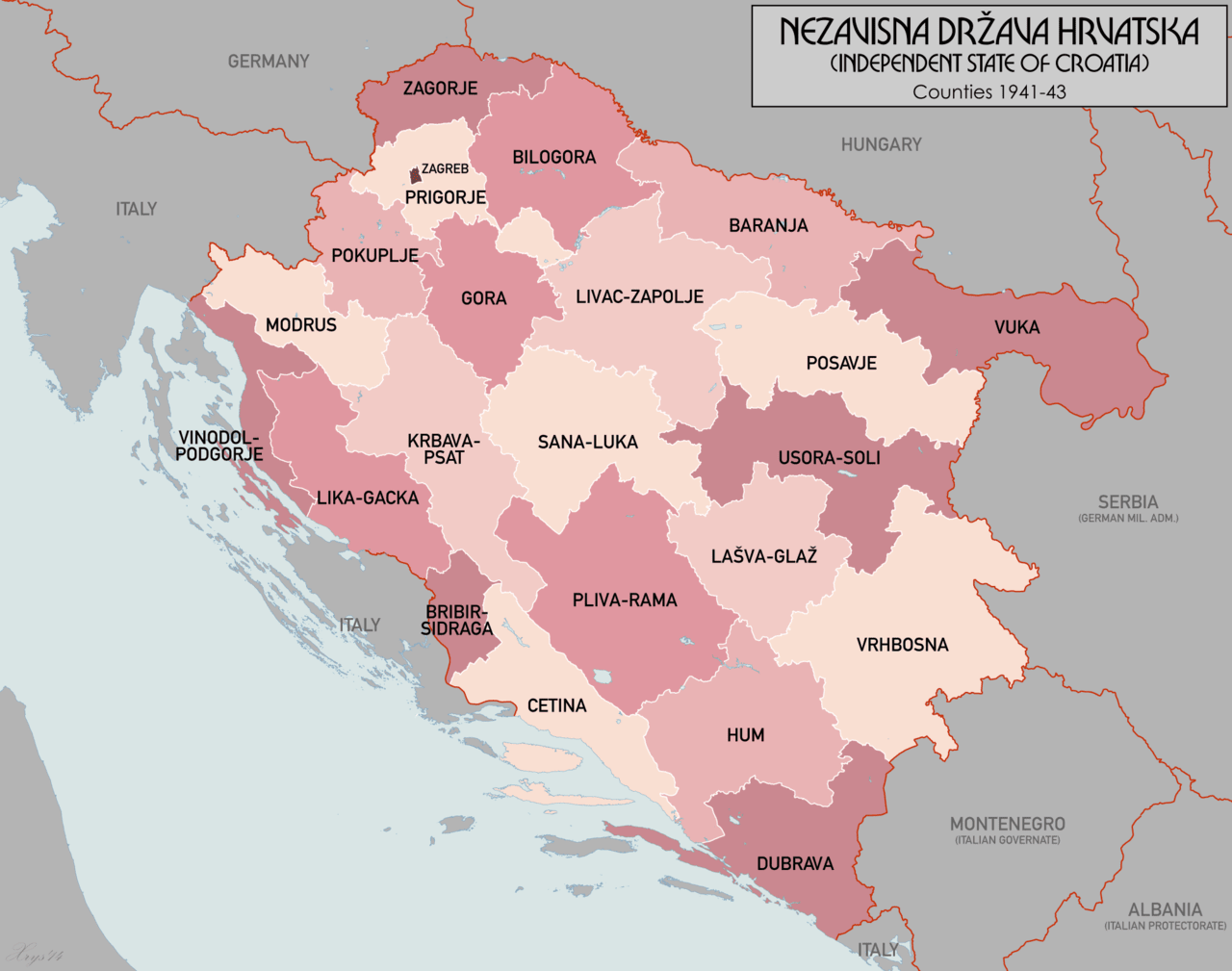
April 11
Branimir "Johnny" Štulić, born on April 11 in 1953, is a singer-songwriter, musician and author, best known for being the frontman of the popular former Yugoslav rock group Azra. He is known for his charismatic stage performances and inspiring song lyrics that often combined rock poetry with a strong sense for social commentary, becoming a cult figure. He began his musical career with a band named "Balkan Sevdah band", performing his own songs and also The Beatles covers and folk music. The name was changed to Azra in 1977. During the 1980s, he became one of the most prominent and influential musical acts in Yugoslavia. The Azra days brought Štulić widespread fame in Yugoslavia, as well as a rabid and devoted youth following – Štulić often used his music as commentary directed towards the social and political conditions in the then-Socialist Yugoslavia.

April 12
On this day in 1524, Croatian count Petar Kružić, Prince of Klis near modern day Split and his army defended the Klis Fortress against Turk invasion. He died in 1537 in the final charge of the Turks, who conquered the stronghold after almost two and a half decades of his successful defense. He began his military career in 1513 when he joined the defending forces of Klis Fortress. In around 1518 or 1519 he was promoted to captain of the Klis Fortress by ban (regent) Petar Berislavić. In 1521 he was named the Captain of Senj together with Grgur Orlović who was named co-captain of Klis. In February 1524 Turkish captain Mustafa laid a siege on Klis Fortress with around 3000 men. The fort managed to hold off the invasion for over two months, while Kružić went to Senj just days before the siege and gathered an army of 1500 foot soldiers, 60 cavalry, and 40 ships to flank the Turkish army. He arrived at the town of Solin the night of 10 April from where they launched an attack on the Turks, destroying their army. For this achievement he was rewarded with the castle Breznica by the King of Hungary Louis II.
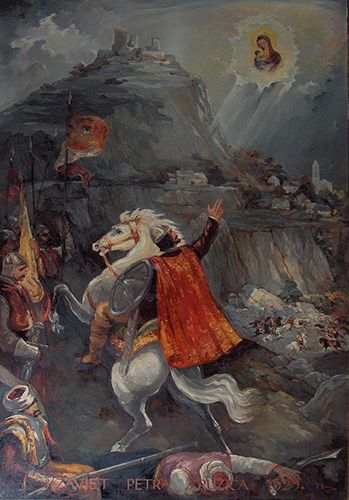
April 13
Born on this day in 1950, Mirjana Šegrt is a Croatian swimmer who competed in 100, 200 and 400 meter freestyle and 10 and 200 meter butterfly disciplines. She was the state champion of former Yugoslavia several times and record holder in freestyle and butterfly disciplines. At state championships in 1957 she won in 100, 200 and 400 meter freestyle and 100 meter butterfly, while in 1968 she took gold in 100 and 400 meter freestyle and broke the European record at 200 meter freestyle in Bratislava.
April 14
At a session of ZAVNOH (State Anti-fascist Council for the National Liberation of Croatia) on this day in 1945 held in Split, the first National government of the Federal Republic of Croatia was elected. The mandate was given to dr. Vladimir Bakarić, while the first government was composed of communist party members, but also representatives of pre-war civil parties who joined the liberation movement. After Zagreb was liberated, the government moved to the Croatian capital on May 20.
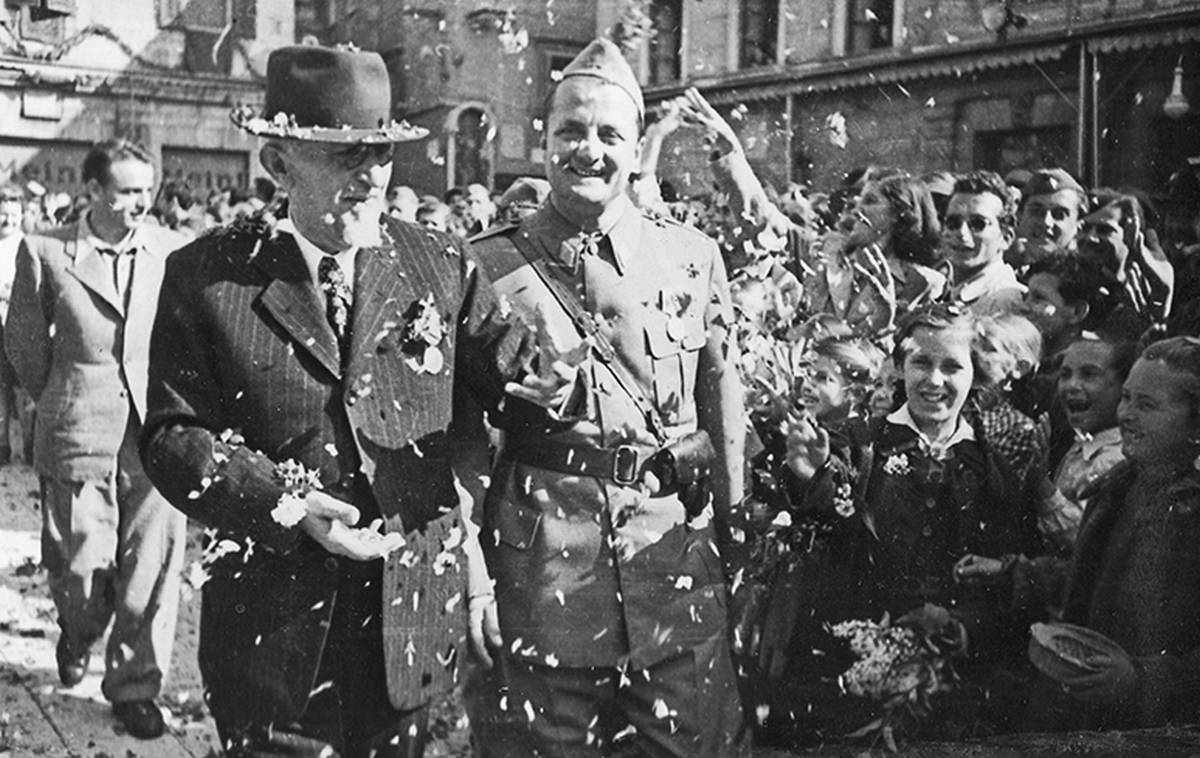
April 15
Franjo Kuharić, born on 15 April in 1919, was a Croatian Roman Catholic cardinal, who served as the Archbishop of Zagreb from 1970 until his resignation in 1997. The cardinal was often referred to as the "Rock of Croatia" known for his defense of human rights and his urgings of peace and forgiveness during the independence conflict and the Bosnian War. Kuharić was also a vocal supporter of the cause for the canonization of Cardinal Alojzije Stepinac (who had ordained him as a priest in 1945) and worked to rehabilitate the image of the cardinal during his episcopate while working towards Stepinac's 1998 beatification held in Zagreb.
